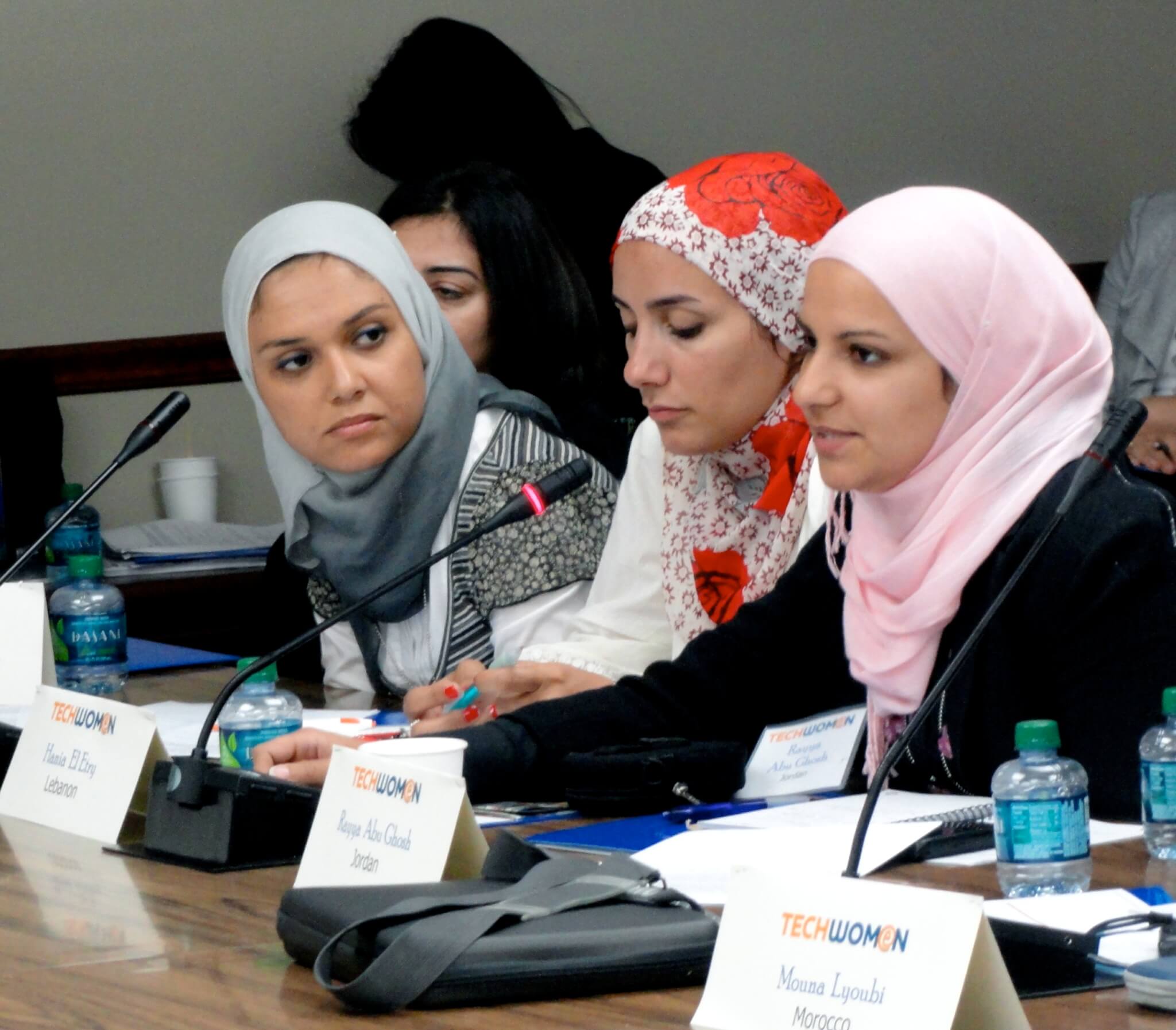Guest Post by Jody Mahoney
I am travelling through Morocco with the TechWomen delegation. I’ve visited small villages where women are the predominant earners, struggling to find distribution channels for their work. We teach them ecommerce, packaging, marketing, competition. Unable to ask their own product questions—the village men are the voices we most often hear—these women genuinely want to move their products into broader distribution. We describe Etsy, PayPal, eBay, leave materials, links and business cards. But I keep thinking, why can’t they learn to develop iPhone or Droid apps? Teach them
Google’s app builder. The younger women are not afraid.
Contrast these rural women with Fatim Essahra El Mansouri, first ever woman mayor of Marrakech. Or Milouda Hazeb, Parliamentary Representative and President of Ennakhil District—only ten percent of Morocco Parliamentary Ministers are women, but Madam Hazeb wants thirty percent, and 50 percent of women in government. Madame la Mayor queried us extensively—what about affirmative action for women? What about the EU move toward board quotas?
The woman’s fight is how these influential women describe the fight for equal rights in Morocco. They blame their English, but I don’t think it’s a language faux pas. Unlike our US and EU colloquial women’s movement, the woman’s fight defines the changing face of Moroccan patriarchal society, as led by women such as Madame la Mayor or Madame Hazeb. The expectation of these strong, determined women is that individual efforts must be powerful enough to pave the way for the thousands of women at home, in villages, towns and cities. And they hold themselves accountable, so it literally become’s the woman’s fight, one woman at a time.
Perhaps the groundbreaking work of Madame la Mayor and Madame Hazeb will one day impact the lives of artisans in the Association A-Foulki Pour Femme. These rural women craftswomen live in the foothills of the Atlas Mountains–charismatic, hardworking, and smart, but with such limited economic options other than the sale of handicrafts. They struggle to build businesses that will keep them impoverished. If they can make candles, couldn’t they make Droid apps? Is that too far a stretch? Perhaps it is. Or perhaps we should take the Berber words a-foulki in the literal sense. Lifting these women out of poverty is good, and beautiful.



Speak Your Mind